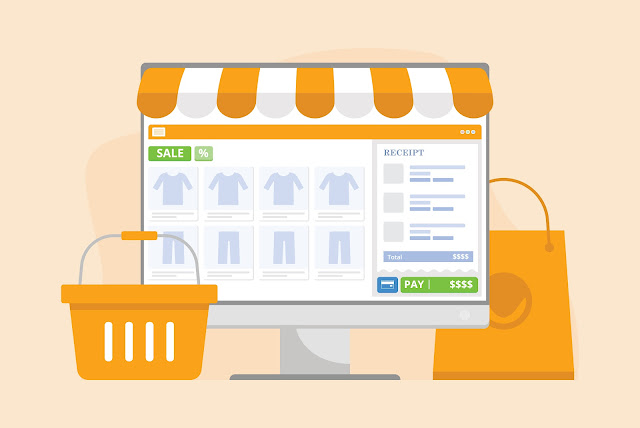Qualities of a Multichannel eCommerce Platform
Managers and business owners need to be able to sell through multiple channels in order to stay competitive. Your strategy should include reliable software solutions to help you grow your business on different sales channels.
A multi-channel eCommerce platform is a great option that gives you access to many tools. Reliability is essential for your business in order to succeed in different markets. An eCommerce platform will help you reach different customers, promote your brand and sell products.
It can be difficult to expand across multiple online marketplaces. This requires additional management and monitoring on other platforms. Their customer journeys must be consistent, unified, and enjoyable for every customer.
The multi-channel eCommerce platform you choose must be able to simplify business management across multiple marketplaces. It must also be simple to use and provide comprehensive control.
This blog will focus on the essential features that online businesses must consider when selecting a multi-channel eCommerce platform.
How multi-channel eCommerce systems may benefit your company?
E-commerce businesses can now sell products on multiple platforms. Global eCommerce sales reached $4.9 Trillion in 2021; it could reach $7 Trillion by 2025.
Your brand's visibility and reach will increase if your products are available in multiple places. 66% of online shoppers use multiple channels for their purchases. 72% of consumers prefer multi-channel marketing to connect with brands and businesses.
Multi-channel selling software offers a central platform for managers that allows them to upload listings, manage prices, track stock levels, and much more. It saves time and effort by allowing you to jump between different marketplaces like Amazon and eBay. It saves you the time of manually reviewing and updating vital business data.
multi channel shipping management | multi channel listing software
Multi-channel eCommerce platforms reduce redundancies in managing multiple selling platforms. They also streamline business processes and keep people's hours down.
There are many eCommerce software options and services. Some platforms excel at inventory management while others are more adept at forecasting demand. Your strengths and weaknesses will play a major role in choosing the best multi-channel eCommerce platform. Maximizing the software will allow you to work faster and more efficiently.
It takes research to find the right multichannel platform. You will need to tailor it to your business needs, scale it when necessary, and invest in it to make your business more efficient. A single platform allows for easy expansion.
Multi-channel Order Management Software Multi-channel Order Management Software Multi-channel Order Management Software Multi-channel Order Management Software Multi-channel Order Management Software Multi-channel Listing Software Multi-channel Listing Software Multi-channel Listing Software Multi-channel Listing Software Multi-channel Listing Software Multi-channel Listing Software Multi-channel Listing Software Multi-channel Listing Software
7 Crucial Qualities to Consider:
Multi-channel management software is plentiful on the market. It is best to choose one that allows you to sell on multiple online platforms. These platforms can be time-consuming and costly so you should look for solutions that automate and streamline your processes.
Integration of the marketplace:
A multi-channel eCommerce platform that can integrate with the marketplaces in which you are active is one of the most important features to look out for. Integrations with Amazon and eBay are some of the most common. Some businesses choose to sell in niche markets because 35% of consumers prefer them for clothing, footwear, and home goods. Bonanza or Fullbeauty are two examples.
Multi-channel Listing Software Multi-channel Listing Software Multi-channel Order Management Software Multi-channel Order Management Software Multi-channel Order Management Software Multi-channel Order Management Software Multi-channel Order Management Software Multi Channel Shipping Management
If your platform is able to connect to foreign markets, it must be capable of international expansion.
Management/Automation of Listings:
You don't have to log on to multiple online channels in order to list your products. It is time-saving to have central software that allows you to upload all your products online without having to switch windows. You should pay attention to the listing requirements for each marketplace and the product taxonomy. These may require manual inputs from you. Listing automation has its limitations, so be sure to understand the capabilities of listing automation, especially when listing on multiple markets.
Multi-channel eCommerce Reporting Multi-channel eCommerce Reporting Multi-channel eCommerce Reporting multi-channel listing software multi-channel listing software multi-channel listing software multi-channel listing software multi-channel listing software Multi-channel Order Management Software
Inventory Control:
It is vital to keep your inventory current in order to maintain positive customer experiences. Every sale made via any platform should be reflected immediately on your main stock. To avoid cancellations or negative reviews, it is a good idea to set sale buffers. When shopping for an eCommerce platform, make sure you have access to real-time updates as well as accurate inventory tracking.
Workflow automation:
Multi-channel eCommerce platforms are able to manage multiple marketplaces easily. This is what makes them so appealing. Automating repetitive, time-sensitive tasks, such as order fulfillment, sales promotions, and bulk editing of catalogs frees you up to concentrate on more important business operations. Some companies may have AI-powered chatbots that assist customers with their queries and concerns.
Multi Channel Shipping Management Multi Channel Shipping Management Multi Channel Shipping Management multi-channel listing software multi-channel listing software multi-channel listing software multi-channel listing software multi-channel listing software multi-channel listing software multi-channel listing software multi-channel listing software multi-channel listing software
Integrated Technology and Apps:
Integrating eCommerce software with plugins is a good idea if you already have them. Connecting to order and warehouse management systems can dramatically increase productivity as you have greater oversight without having to switch between apps. Integrating email marketing, customer rewards, and shipping apps is a good idea.
Analytics:
Data and analytics are essential for any business's growth. A platform that tracks your customer behavior and pulls data from sales is a great tool. You can then create customized customer experiences using targeted sales or special vouchers.
Easy of Use:
Everybody has different levels of technical knowledge. Therefore, you need a multichannel eCommerce platform you can easily navigate. The primary functions must be easy to access and simple to use. A clean and intuitive design is also important, especially when used frequently.
Support:
If there are any issues with an eCommerce platform, support staff should be easily reachable. It should offer 24/7 support and a user-friendly help guide. Any comprehensive eCommerce platform software should have a support line that is available to provide immediate assistance.
multi-channel listing software Multi Channel Shipping Management Multi Channel Shipping Management Multi Channel Shipping Management Multi Channel Shipping Management Multi Channel Shipping Management multi-channel listing software multi-channel listing software multi-channel listing software multi-channel listing software
Multichannel expansion and operation lead to greater business growth and responsibility. You must be able to adapt to all changes and provide consistent, excellent service across all channels. This means being able to quickly adapt and adjust to the various online platform requirements.
Multi-channel eCommerce platforms make it easier to cross-sell and upsell. You can monitor the performance of your store with a centralized management platform. Comparing data helps prevent self-competition.
You and your employees will be more efficient managing different marketplaces while still meeting customer requirements if you can simultaneously perform multiple tasks.
The best multi-channel eCommerce platform should be chosen:
There is eCommerce software that can accommodate any business, regardless of how large or small. You'll be surprised to learn that although many eCommerce platforms have the same purpose, their features and benefits can vary.
Before you choose the right software for your online presence on different eCommerce marketplaces, create a strategy to manage all these online channels.
Multi-channel Order Management Software Multi-channel Order Management Software Multi-channel Order Management Software Multi-channel Order Management Software Multi Channel Shipping Management Multi Channel Shipping Management
Consider where your company is now and where you want it to go next year. These platforms can be difficult to set up and use correctly.
Take into account your immediate needs and current capabilities before making a decision.
Prioritize the areas of your business that the selected management software or app can streamline. This could include inventory management or product listing or responsive customer service.
Multi Channel Shipping Management Multi Channel Shipping Management Multi Channel Shipping Management Multi Channel Shipping Management Multi Channel Shipping Management Multi-channel eCommerce Reporting Multi-channel eCommerce Reporting
Make sure that your tools and services are compatible.
The distribution channels that you use are an important factor when investing in multi-channel eCommerce platforms. If you have a website, it can be a great opportunity to expand your reach into other online marketplaces. Statista shows that third-party sellers were able, in Q2 2021, to sell 56% more units on Amazon.
Your brand may not be the first thing customers search for. Multi-channel selling is a great way to diversify your eCommerce sales. Reach customers where they already shop. Your sales potential increases as your audience grow. A marketing strategy that is focused on one channel will not bring you success. However, directing more people to other channels can help create memorable customer experiences. Multichannel shoppers spend 33% more than single-channel customers.
Be realistic about your budget and operating costs. Many multi-channel order management programs offer annual subscriptions that can result in greater savings over the long term. Partner platforms that offer the highest return on investment are best.



.jpg)
Comments
Post a Comment